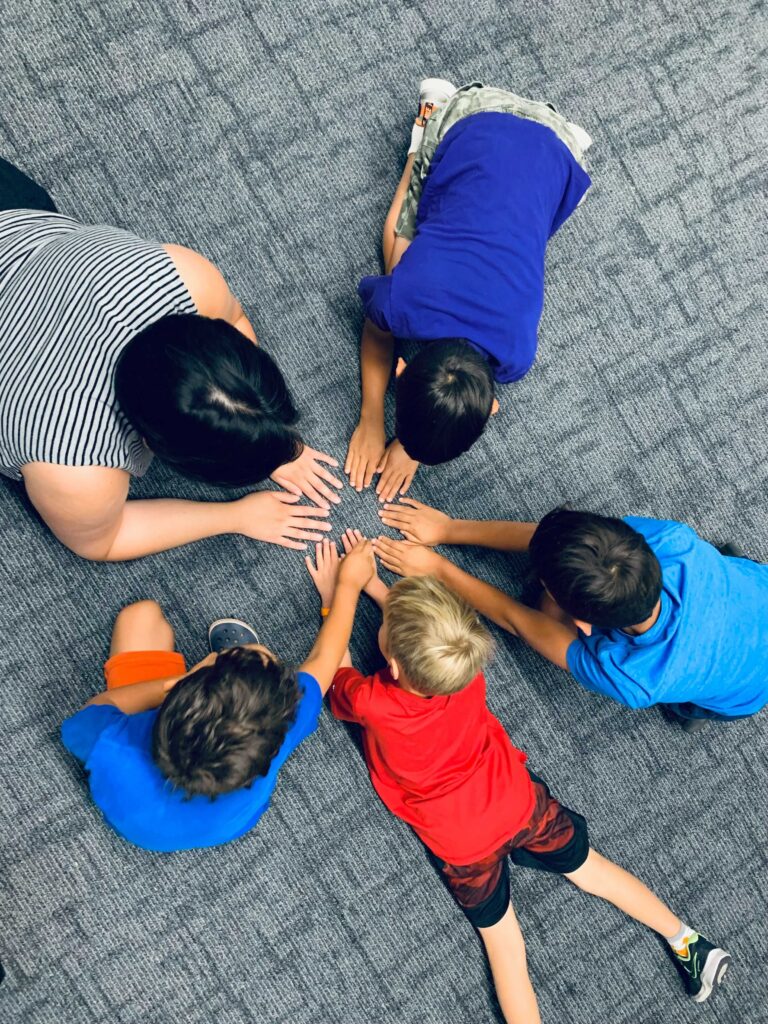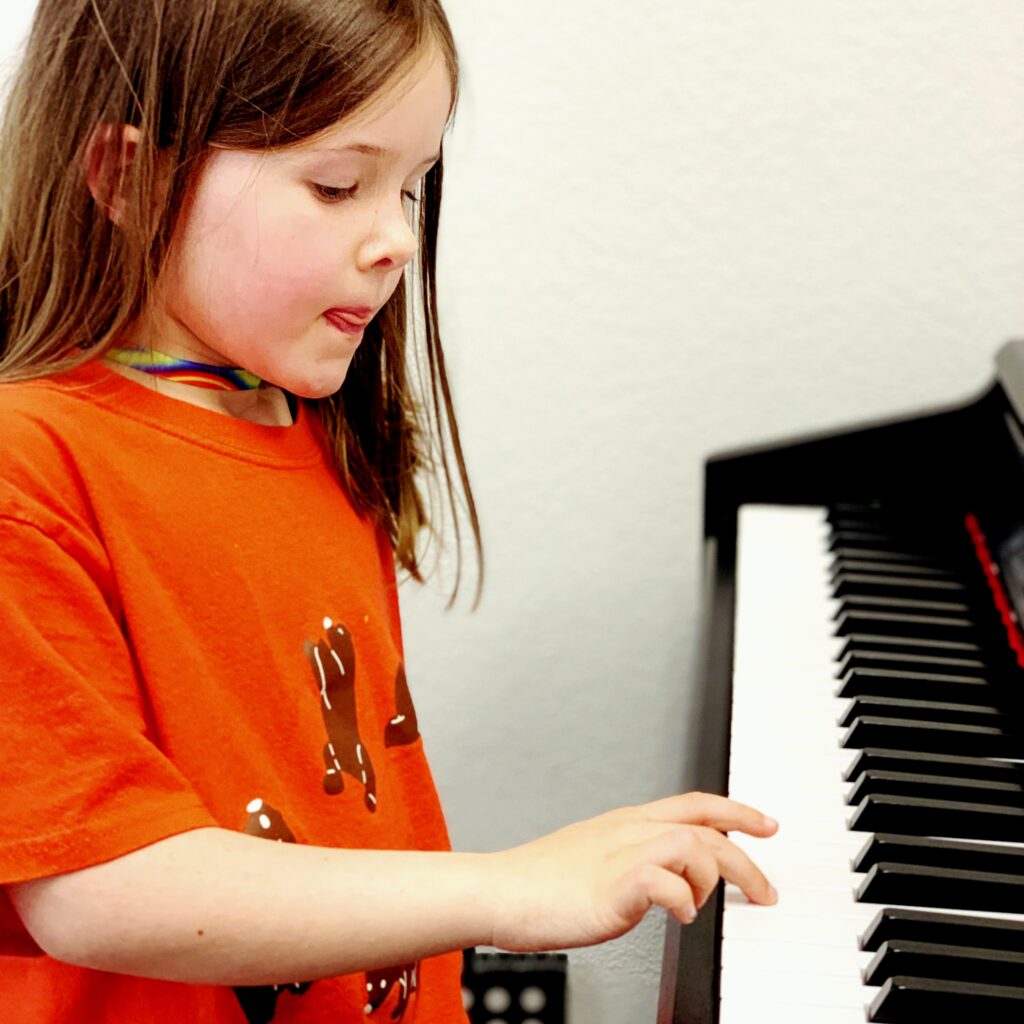Summer Music Camps for Kids
Summer is almost here and many of you may be asking yourselves, what summer camps should I put my own kids in? The answer is easy: summer music camps for kids!
Summer music camps are a great way for students to further explore their music skills and give children the chance to get extra practice with the reading and understanding of music. Moreover, music summer camps develop a child’s love for the arts.
“Summer Time, Summer Time Music Camps for Kids Time!”
Just to give you an idea, here are five musical focuses of a typical summer music camp:
- Musical Crafts
- Socializing Through Music
- Musical Games
- Music History
- Music Theory
1. Music Camps & Musical Crafts

First, students will spend time working on arts and crafts centered around music. Crafts are a great way to keep children engaged and involved while they aren’t in school.
Students may create craft versions of instruments, composers, and even their own music scores! As a result of this, students will better understand the makeup of individual instruments. This will create a deeper love of music and music education.
During musical craft times, students will use their creative talent both artistically and musically.
For example, children may color-in self-portraits of famous composers. These may be followed by listening to their famous music and hear a short historical description of each composer!
Additionally, students will color in instruments and match them to the correct music group.
Moreover, and importantly, crafting is another art form that allows students to further explore and understand themselves.
Lastly, creativity developed through crafts is an important emphasis in these musical crafts and a huge part of child growth. This is because it allows children to be in touch with their emotions.
Socializing Through Music
Secondly, summer camps can be a great way for students to learn how to communicate with other children their age. Children love high energy social settings where they can explore the sights and sounds around them.
Socializing is an important process of child growth. Children who socialize at a young age go on to be more confident and content.
Additionally, students will be introduced to a variety of music teachers. Music teachers can act as great role models to these young musicians. This will allow children to ask questions and communicate with these new and interesting people.
It is important to teach students how to socialize and music is an excellent context for it! This can help foster incredible student independence.
Music summer camps can improve a child’s ability to communicate. And we all know that effective communication skills are an important part of personal growth.
This also will help to grow a child’s creativity and sense of self.
Music Games

Third, students will laugh and play with other children during games that use music. This will open up students to love music!
Students may play musically adapted versions of games such as hopscotch, Simon says, and duck-duck-goose to familiarize themselves with rhythms and beats.
Additionally, games centered around music allow kids to move around and express themselves. Therefore, musical games can create a sense of joy for the arts.
Additionally, games centered around music allow kids to move around and express themselves. Therefore, musical games can create a sense of joy for the arts.
Moreover, games help to improve children’s finger movement, strength, and imagination.
Music History
Fourth, students will spend time studying and learning music history.
It is important to introduce students to music history at a young age because it helps them to further grasp the skills they are using in private lessons.
Music history can help improve your child’s world history knowledge as well. Moreover, children can expect to learn about composers, music theory, and various types of music.
Learning the history of music is important in understanding the art form and history allows students to see multiple styles. It also teaches them how to see similar patterns in other music.;
Music history also allows students to be connected to time periods outside of their own.
Lastly, music history will allow students to see how guitar and piano came to be. History helps a child’s moral growth.
Music Theory

Music theory is the breakdown of music with numbers. It important to learn because it helps musicians to understand what they are playing.
Music theory shows the patterns and connections in music. It has also been linked math in terms of brain growth. Studying patterns and rhythms helps children to better problem solve.
Additionally, knowing music theory explains children the sounds, notes, and rhythms of each piece. It is the key to understanding how music works.
Therefore, students will spend time understanding learning the basics of music theory. They will study rhythms, note patterns, and dynamics.
Additionally, it is important to teach students music theory because it builds a good base.
How Music Theory Can be Taught
In summer music camps, children can be introduced to music theory through multiple games. These games will focus on the basics that challenge them to use music theory.
Theory can be difficult to learn. Therefore, introducing it in a way that is fun and exciting will allow children to associate it with positivity.
Summer music camps for kids can be a fun and exciting way to entertain children during the summer.
Summer music camps can be a fun and exciting way to entertain children during the summer. They help to foster learning and creativity.
Additionally, children have a place to gain independence and confidence as well as teachers and friends.
Summer music camps provide children with summer camp memories like no other experience does. These camps allow kids to express themselves creatively and find their sense of self.
Children will walk away with a higher sense of self and confidence.
And finally, music allows over-all child growth through language , social and emotional skills, and their ability to read.
To Learn More About Summer Camps at Martucci Music, Click HERE